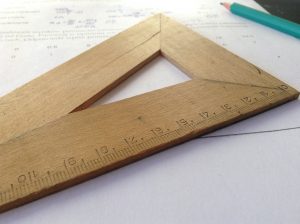
[Pexels, Louis Bauer]
An increasing number of children are starting to have tuition, starting from as young as preschool. Parents want their children to be ready for Primary School and to be able to keep up with their peers.
Despite the Primary School Leaving Exams (PSLE) being in Primary 6, parents see a need for their children to do well in their lower Primary years, both to get good grades and to ensure their foundations in each subject are solid.
Is tuition necessary for Primary 1 students, though? Let’s talk about it.
How Tuition Helps

[Pexels, Jessica Louis Creative]
Tuition helps students by teaching them the subject material they need to learn and helping them revise.
Tutors help each student overcome their personal difficulties when it comes to studying and give them the attention they may need but be unable to get in a large classroom setting.
Tuition can help with not only a student’s grades, but teach them better learning and work organisational methods. Since they’re more familiar with each student’s struggles, they can help students learn faster in their own ways.
At an older age (e.g. Upper Primary or Secondary school), tuition is used to help students grasp more complicated topics.
From Primary 3 onwards, students start learning Science, so sometimes they need extra help in grasping the new subject and to make sure their foundation in it is solid before they move onto the different branches of Science in Secondary school.
The Primary School Leaving Examination (PSLE) is also known for its extremely challenging questions, and some students may need more help understanding or getting used to the format of these questions.
While Lower Primary topics such as spelling and counting to ten may seem simple, they’re new and complex to young children who are only just beginning to learn them.
Not to mention, these are extremely important to building the student’s foundation in each subject for their future.
Benefits of Different Tuition Settings

[Pexels, Dawid Malecki]
For example, in private one-on-one tuition, there are usually less distracting factors, so it may be easier for children to concentrate, while in group tuition it’s easy to get distracted by peers.
On the other hand, having peers in group tuition helps children learn to socialise and studying with other people may even be more effective for them.
Private tuition will be able to help each student focus more on their weaknesses and give them more attention, while in group tuition the tutor’s attention may be split between each student.
However, this is also specific to each student as some students thrive when they are given less attention and more independence, while the opposite can be said for others.
Conclusion

[Pexels, Miguel Á Padriñán]
There are many things to consider when thinking about sending your child to tuition classes. How well they’ll adapt to the extra workload, how they may react to having a new teacher, and what areas exactly do they need help in
Tuition is never absolutely necessary, but every child has different needs and goals and tuition can help improve not just their grades, but their learning habits and methods as well. It all depends on your child’s specific situation!
No matter their age, there will no doubt that tutors can help your child flourish.
